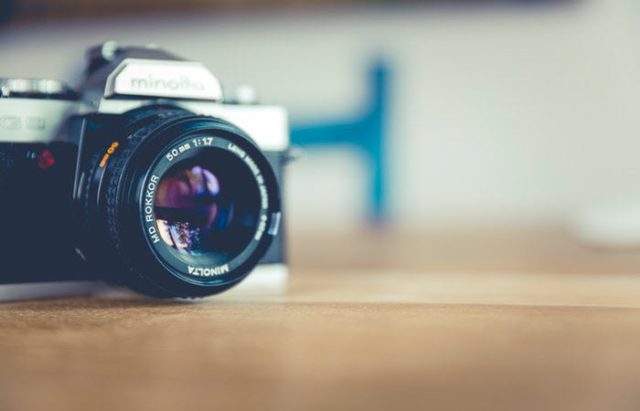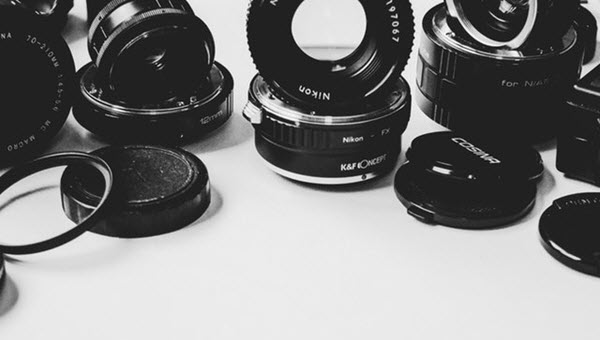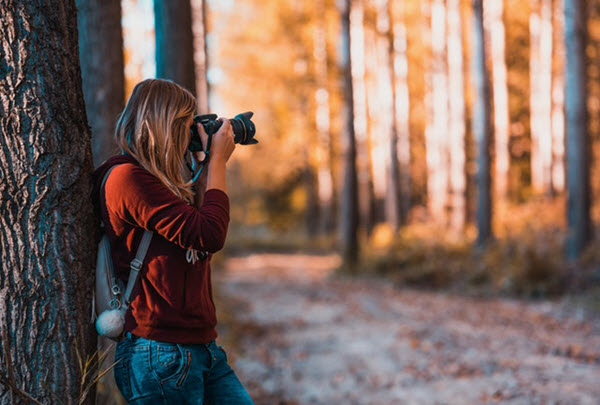A Step-By-Step Guide On How To Clean Your Camera
By Betty Moore
January 18, 2018 • Fact checked by Dumb Little Man

Cameras are incredibly expensive. On top of that, their gear is also expensive. With that, you need to take the necessary steps to make sure that you can keep your camera working for as long as you can. But, do you know how to clean your camera? Now, to ensure longevity, you need to take proper care of your equipment and learn to clean it properly. This post will teach you some of the basics.
Don’t Use Your Shirt to Clean Your Lens
This is one of the most common mistakes made by anyone learning to use a camera. They look through the lens and see a speck of dirt and they wipe it off with their shirt. Yes, it technically gets rid of the smudge, but your sweater absorbs dirt and sweat throughout the day. That gunk transfers over to the lens. Your shirt can even scratch the glass, too. Instead of using your shirt, you need to use a special cloth, like a lens tissue or microfiber material, to clean your glass.
Always Use a Lens Cap

Take Care of Your SD Card
SD cards store all the photos and videos you’ve taken. They’re necessary to transfer that data over to a computer for editing and properly caring for them is essential. Your camera has a blinking light near the SD card slot. When blinking, that means data is being written to the SD card. Too many users rip their SD card right after turning the camera off. This is wrong and it can ruin all the shots you just took. Make sure to wait at least five seconds after turning the camera off to eject the card.
Cleaning the Rear Area of The Lens
This part gets overlooked a lot but it’s a big deal when it comes to keeping your equipment working. The rear area of your lens is the part that attaches to the body of the camera. Any dirt or gunk on it can get into the sensor and ruin the body of the camera. The best way to address that is to use compressed air or a cotton tip with a small amount of alcohol on it.
Cleaning the Camera Body
Take a clean paintbrush and run it through the outer body of your camera. Once done, take some compressed air and puff it around as well. Make sure not to let the dust blow into the body. Cameras such as Nikon or Canon make it simple to clean. Both companies have manuals and videos to guide you.
Camera Sensor
Your camera’s sensor is the most expensive part to replace and an essential piece of your camera. Shooting outside almost always guarantees getting something stuck in the lens. That lens then transfers the dust over to the sensor and those specks of dirt can ruin every single photo. There’s almost no way to clean it when out and about, either. Sensors need special care, though there are a few ways to do it by hand: Auto Clean: Every single DLSR on the market comes with an auto-clean function. This option “shakes” the sensor with the intention of knocking the dust off. However, this only works with very light specks and will do very little to a very dirty sensor. Swabs and Fluid: You can purchase swabs designed to clean your sensor without damaging it. Pairing them with a specific cleaning fluid means you can wipe it clean almost instantaneously. You can even get swabs that are the exact size of your sensor so you can get it done in one swipe. If your sensor is still dirty after all of this, you need to bring the camera body to a cleaning expert. They have the tools and will take the time required to clean your sensor correctly. Also, be careful not to overexpose the sensor whenever you’re switching lenses. When changing lenses, do it as quickly as possible. Remember to face your camera downwards when making the switch.
In Usage

Betty Moore
Betty Moore is a content writer. She is a content marketer, sharing experience in finance education. Connect with her on Facebook or Twitter.

